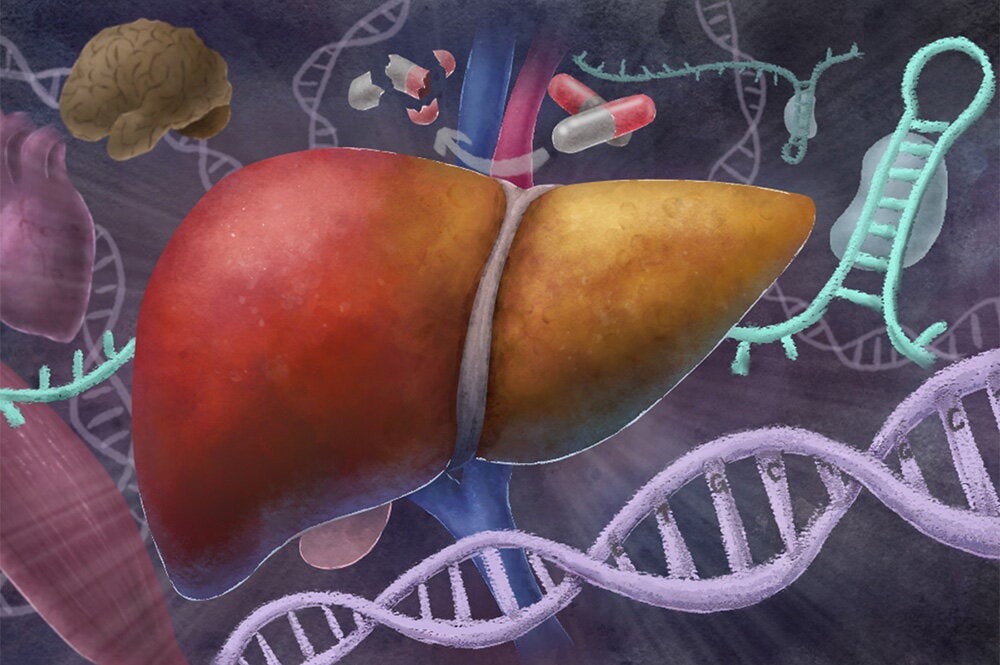

In a finding that bodes well for treatment of diseases and conditions such as rheumatoid arthritis or asthma, researchers in LAS have deciphered a molecular code that controls inflammation.
The finding sheds light on a protein complex called NF-kappa B, often referred to as the master regulator of the immune system. Under normal conditions, NF-kappa B is kept at bay by an inhibitor protein in the cell. When cells come under attack the inhibitor is degraded, and NF-kappa B moves rapidly to the cell nucleus and sets in motion an army of proteins that cause inflammation, one of the body’s methods of healing and rejecting a foreign object.
Normally swelling reduces as the inhibitor protein resynthesizes and inactivates NF-kappa B, but recent studies indicated there was an alternate means to shut down NF-kappa B, namely, NF-kappa B is degraded in the cell. Biochemistry professor Lin-Feng Chen and his colleagues, including postdoctoral researcher Xiao-Dong Yang and chemistry professor Neil Kelleher, hunted for the signals that could control its degradation.
Chen’s earlier work gave him clues about how protein activity could be modified when chemical groups are added. They used that experience to determine that a particular methyl group could be added to NF-kappa B to regulate its degradation, as the methyl group serves as a “death signal” for the NF-kappa B. It showed for the first time how NF-kappa B degradation is initiated.
“In some cancers and inflammatory diseases NF-kappa B is permanently active,” Chen says. “The turn-off mechanism has been inactivated.” He says the discovery of the pathway could lead to new drugs that modulate the turn-off pathway and influence the inflammatory response.


